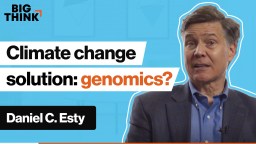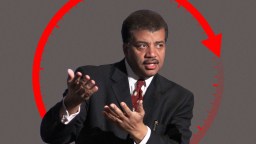climate change
A European start-up uses satellite data to pinpoint individual sources of abnormal methane concentration.
Today’s agriculture workers face 21 days of heat that exceed safety standards. That number will double by 2050.
Why did the dinosaurs go extinct? Because they didn’t have a space program.
▸
4 min
—
with
The environmental benefits of the coronavirus pandemic are only temporary, warns the head of the UN Environment Programme.
The response to the pandemic illustrates five actions we can take to address the global climate change crisis.
Using permanent magnets may help to make nuclear fusion reactors simpler and more affordable.
As it turns out, people who can afford to fly all the time use more energy than anybody else.
The Hollywood blockbuster may have been right, if only 3.2 billion years off the mark.
Deciding how we ought to live is one of the greatest challenges of being alive. Ask yourself these important questions to gain clarity, with philosopher Peter Singer.
▸
7 min
—
with
Why a 400-mile enclosure around the North Sea is not as crazy as it sounds
From gun control to immigration, Americans remain split on a handful of contentious issues.
Methane is 80 times more effective than carbon dioxide at trapping heat in the atmosphere.
Global warming has shown that permafrost is not so permanent after all.
Technological advances in molecular biology could help fix the planet.
▸
2 min
—
with
Belief systems aren’t necessarily dangerous until they’re spread by someone with influence.
▸
4 min
—
with
On average, American households dump the equivalent of $1,900 worth of food a year.
61% said adopting a vegan diet was not enjoyable.
The race to be first in science journalism is hurting science.
▸
5 min
—
with
The impact of giving up is exactly the same as the impact of denying climate change.
Australia’s beloved and bizarre egg-laying mammal could start vanishing in coming years if current trends continue.
The TRUTHS mission aims to collect extremely precise data on how much radiation Earth absorbs and reflects.
The 17-year-old climate activist gets a lot of criticism online. Which of those critiques hold water?
Hundreds more are documented in Robert Macfarlane’s Landmarks.
From talking about Schrödinger’s cat to nuking the South Pole, this decades-old interview shows why Kaku was born to be a science educator.
Global warming appears to be front of mind for people worldwide.
Change is coming, but not from the generation that currently holds positions of power.
▸
3 min
—
with
Researchers call this “intergenerational reciprocity.”
Is the way we choose which animals to protect out of date?
Viral ‘photo’ is composite image, but other map shows true and growing size of devastation





























